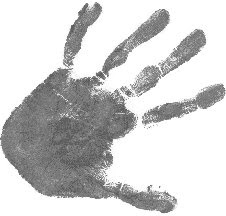could craig v. scioto prove bambi's undoing?
 UPDATE: Berg case (Philadelphia) filed with SCOTUS today.
UPDATE: Berg case (Philadelphia) filed with SCOTUS today.
The Bambi Birth Certificate hearing was this morning. Very interesting summary in this article.
The state's position is this:
"... the allegations in the Complaint are nothing but speculation and inadmissible hearsay. There is no evidence in the Record that Senator Obama was born in Kenya, or that he somehow lost his United States citizenship during his time in Indonesia. Mr. Neal's allegations are anything but 'clear or free from reasonable doubt' ," the attorney general's brief stated.That's IT?
Mike Schuler and Steven McGann, representatives from the Ohio Attorney General's office, also appeared this morning in Warren County Common Pleas Court, filed the state's brief and said nothing during the hearing.
Read the article linked in the post below this. On the point of "no evidence in the Record" above, see this:
Now that Obama’s citizenship has been seriously questioned, the burden of proof rests squarely on his shoulders. The “burden of establishing a delegation of power to the United States * * * is upon those making the claim.” Bute v. Illinois, 333 U.S. 640, 653 (1948). And if each of the General Government’s powers must be proven (not simply presumed) to exist, then every requirement that the Constitution sets for any individual’s exercise of those powers must also be proven (not simply presumed) to be fully satisfied before that individual may exercise any of those powers. The Constitution’s command that “[n]o Person except a natural born Citizen * * * shall be eligible to the Office of President” is an absolute prohibition against the exercise of each and every Presidential power by certain unqualified individuals. Actually (not simply presumptively or speculatively) being “a natural born Citizen” is the condition precedent sine qua non for avoiding this prohibition. Therefore, anyone who claims eligibility for “the Office of President” must, when credibly challenged, establish his qualifications in this regard with sufficient evidence.The burden is not on the plaintiff according to the quote above. Bambi CLAIMS he is eligible, CLAIMS he satisfies the express requirement of the Constitution. Since when do we have to prove a negative? That he was NOT born here? That is unworkable. He has to prove it.
And where does the state get off setting the standard at "clear or free from reasonable doubt"? That's a criminal standard - used in reverse! It suggests that Bambi is a natural-born citizen merely by claiming it unless a contestant can prove beyond a reasonable doubt that he is not. This is a civil case - not a criminal case. Why even mention a criminal standard?
Do we really think the Founding Fathers intended it to be that way? It seems to me that an affirmative duty is placed upon the candidate to establish to at least a preponderance of the evidence that he or she is qualified to run for office.
The most interesting part to the Ohio case is that the state remained silent during the hearing.
There is one Ohio case I found that is instructive. THE STATE EX REL. CRAIG v. SCIOTO COUNTY, 882 N.E.2d 435 (2008).
The test seems to be three-fold: (1) a board of elections and its members are about to exercise quasi-judicial power; (2) the exercise of that power is unauthorized by law; and (3) denying the writ will result in injury for which no other adequate remedy exists in the ordinary course of law.
The court first looked at the timeliness of the complaint (barred via "laches"), which was asked about in this hearing to (plaintiff said - the Philadelphia case looked like it would solve it, so I wanted until it was clear it would not): "The elements of laches are (1) unreasonable delay or lapse of time in asserting a right, (2) absence of an excuse for the delay, (3) knowledge, actual or constructive, of the injury or wrong, and (4) prejudice to the other party." The Court went on to say: "The board of elections and its members are correct that an unjustified delay in submitting a protest in an election case can result in laches."
Was waiting until Philadelphia failed legitimate? The question may be answered in whether the statement was rebutted. If it was, it had to be in the brief, because the state was silent at the hearing.
The next issue is the first prong of the three-fold test: Did the Board of Elections exercise its authority to deny plaintiff's request to remove Bambi? I don't have the complaint, and the article doesn't tell us. It's troubling to me that the Board of Elections is not mentioned in the article, just the state AG.
Discussing the second prong, specifically whether the candidate met the requirements to run for the office, the Court wrote: "Craig established the second requirement for the writ by showing that Reed did not meet the supervisory-experience requirement ..." It does not say how he established it - whether through simple allegations or evidence. If allegations, then Bambi is in trouble. How could it be proven through evidence in every situation anyway? Seem slike proving a negative.
The third prong - adequate remedy at law - was tossed aside by the Court. The election was too close, it stated.
The suit won. The candidate was removed from the ballot.
Seeing Bambi challenged and won in removing all of his adversaries from the State Senate race, wouldn't this be sweet?
A decision is due Friday (October 31) at noon.














Man, I sure wish this would work.
ReplyDeletei agree, arkady. we do seem to be approaching a landfall, though. should be interesting.
ReplyDelete